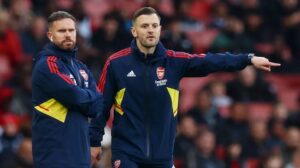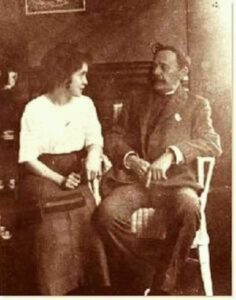
Norwich City’s Transformation: From Local Ownership to Data-Driven Innovation
Delia Smith steps away from Norwich City, leaving behind a well-run club that has embraced modern football trends and a data-led future.
Norwich City: English Football’s Bellwether Club?
While it may seem an unusual claim, Norwich City in 2025 perfectly embodies the shifting landscape of English football. A club once defined by local ownership, prudent management, and resilience, Norwich has now embraced American investment, data-driven recruitment, and a Scandinavian influence, positioning itself at the forefront of modern football’s evolution.
New American Investment
For nearly three decades, Norwich City operated as a family-run club, with Michael Wynn-Jones and Delia Smith steering them through highs and lows. Their commitment led to five Premier League promotions, but they never had the financial firepower to sustain long-term top-flight success.
As the landscape changed—with clubs increasingly owned by state-backed entities, multi-club networks, and hedge funds—Norwich held on longer than most. However, in April 2024, American investor Mark Attanasio, owner of the Milwaukee Brewers, purchased a 41% stake, increasing his control to 85% by October.
Norwich joins a growing trend of U.S. investment in the English Football League (EFL). With eight Championship clubs and another nine across League One and League Two now American-owned, the trend reflects a mix of financial opportunity, football heritage, and the allure of promotion and relegation, a system absent in closed-shop U.S. leagues.
Life Without Parachute Payments
Norwich’s yo-yoing between the Premier League and the Championship made them the perfect case study of parachute payments, a system designed to cushion relegated clubs financially. However, with this being their third straight season in the second tier, those payments have now disappeared.
After announcing a £14.4 million annual loss (down from £27 million the previous year), the club has been forced to cut wages, reduce transfer spending, and rethink their squad-building approach.
A Data-Driven Future
With the departure of David Wagner last summer, Norwich saw an opportunity to embrace a data-led recruitment model. Clubs outside the financial elite must buy low, develop talent, and sell high—and Norwich’s latest transfer window reflects that shift.
Under new sporting director Ben Knapper (formerly of Arsenal and StatsDNA), the club moved away from experienced signings and instead focused on young, undervalued talent from across Europe. Their recent signings arrived from clubs such as Rakow, Slavia Prague, RB Salzburg, and Levski Sofia, with all 13 new players aged 23 or younger.
Attanasio, with his background in Major League Baseball analytics, was always likely to push for a data-driven recruitment model. Norwich now boasts an extensive data department, including data scientists, analysts, and engineers, ensuring their scouting process is more precise than ever.
Scandinavian Influence & The Rise of Johannes Hoff Thorup
A modern recruitment model demands a manager aligned with the philosophy, and Norwich’s appointment of Johannes Hoff Thorup is a bold reflection of that. At just 35 years old, Thorup was the fourth-youngest manager in the EFL when he took charge.
Having worked his way through FC Nordsjaelland’s youth system before becoming their head coach, Thorup represents a growing trend of English clubs appointing managers from youth-focused European leagues. Similar hires include Sunderland’s Regis Le Bris (from Lorient) and Plymouth Argyle’s Ian Foster (formerly at Club Brugge).
The Scandinavian influence is also evident in Norwich’s player recruitment, with signings such as Emiliano Marcondes (formerly of Nordsjaelland) and Oscar Schwartau (from Brondby). Across the Championship, there are 23 Danish and Norwegian players, a sign of the league’s growing reliance on young, development-focused talent.
A Clear Footballing Philosophy
One of the most striking changes at Norwich under Thorup is their commitment to a clear playing style. They rank:
- First in the Championship for short passes and possession-based play
- Last in the league for chances created as a percentage of total passes
- Among the top for progressive passes and entries into the final third
This reflects a structured, technical approach, mirroring trends seen across Europe’s best youth development leagues. Norwich’s philosophy isn’t just about survival—it’s about sustainability and long-term success.
The Future of Norwich City
As Norwich transitions from a traditionally run club to a modern, data-led operation, they serve as a blueprint for non-elite clubs aiming to compete in an era of financial disparity.
By embracing smart recruitment, youth development, and progressive coaching, Norwich City might just be English football’s bellwether club in 2025—a model for others to follow in an ever-changing landscape.






